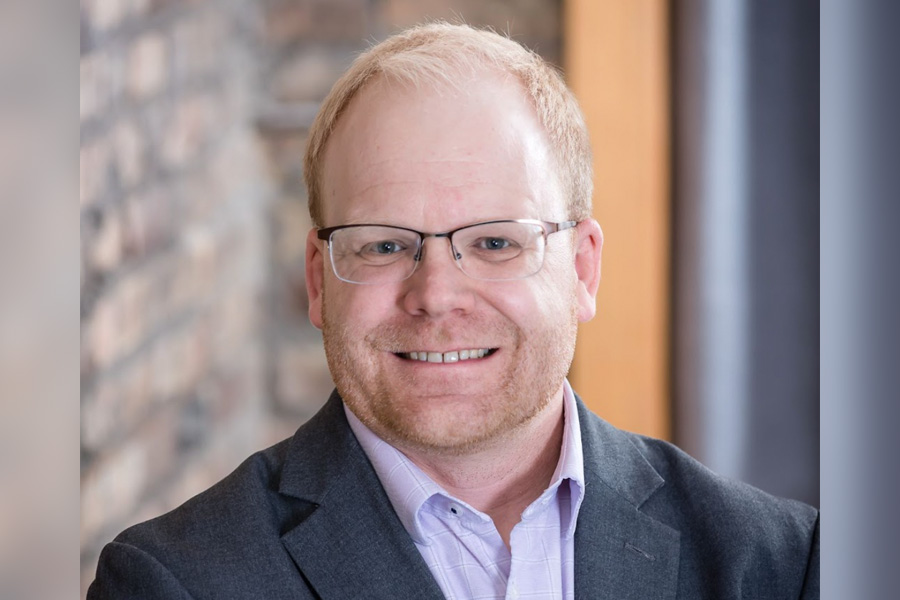What is your current role in health care?
“I currently serve as Director of Provider Partnerships at Blue Cross and Blue Shield of Minnesota with a strong focus on helping healthcare systems transition to and be successful in value-based payment models.”
What stands out as a favorite memory during your time as an MHA student?
“I was part of the evening MHA Working Professionals program for early careerists and my favorite experience was the relationships forged with my working professional cohort. We gathered for dinner before our evening classes once or twice a week at the Big 10 where we shared our workplace experiences and compared ideas on concepts that we were learning and how we were putting them into action. It was a great way to learn and grow our careers together. This core group of people included Eric Nelson, Drew Ely, Adam Kanallakan, and Sanjib Basak. After all these years, we still reach out to one another if we’re considering a career change or need professional insights, or advice.”
How has the MHA Program helped prepare you for your career?
“I had always wanted to serve in the military, but the timing wasn’t right and I didn’t necessarily have a skill set to offer. After my years working in healthcare, coupled with my MHA, it opened the door to commission as a healthcare administration officer in the United States Navy. The degree helped me pursue my dream.
The MHA Program was also key to my early wins and success in military medicine. I applied the Minnesota Problem Solving Method to projects and used that core framework to bring in different subject matter experts, understand their perspective, and synthesize this into new and creative solutions. Progressive successes in projects led to promotion that brought larger projects and increased scopes of responsibility.
For example, the military and Veterans Affairs had a complex and challenging disability evaluation system with long processing and decision lag times that caused a lot of frustration for our wounded, ill, and injured Sailors and Marines. By bringing together clinical, administration, and IT subject matter experts, we developed an automated solution that removed paper from the process, and cut down our processing time by over 100 days saving the Department of the Navy over $11 million dollars in 2012. More importantly, it allowed our wounded, ill and injured Sailors and Marines to bring closure to their military careers and transition into civilian life with VA benefits fully adjudicated.
I don’t think I would have had that level of understanding or that ability to problem solve if I hadn’t developed this framework in the MHA program.”
What challenges and opportunities will healthcare leaders encounter in the next 5-15 years? What skills will leaders need to be successful in light of these challenges and opportunities?
“This rising cost of healthcare is unsustainable for patients, employers and purchasers. If creative solutions are not developed to address this complex issue in a way that is equitable for all parties, I am concerned that there will be dire consequences for all parties – patients, providers, insurers, and employers. Additionally, we have no understanding yet if we have reached our new post-pandemic normal causing more uncertainty when planning for future solutions.
In terms of skills, I think the most important skill for healthcare leadership is adaptability. It is important to recognize that what has worked in the past, is not going to hold true in the future. Health leaders must be flexible and adaptive to this new reality to be successful.”
If you could give one piece of advice to a current student, what would it be?
“First, there is not one singular pathway to becoming an impactful healthcare leader. When you are in the MHA Program, it can be easy to get caught up in the notion that if you don’t follow a certain route, you will not achieve a certain position by a certain point in your career. Some of the unexpected career opportunities are the ones that advance you the most by giving you critical insights and experiences that will make you a more insightful, well-rounded leader in the future.
Second, healthcare thrives on strong relationships. The healthcare industry, at its core, is an industry built on trust. Our patients need to trust our physicians, or they aren’t coming to our clinics. Our primary care providers need to trust our specialists, or they are referring patients. Our healthcare providers, as a whole, need to trust you as a healthcare leader. If you don’t make the effort to foster their trust and to build that relationship, you’re not going to be successful.”
Why is your class the best class ever?
“I had an exceptional class, but rather than compare one class against another, I think that we should instead recognize the importance of the University of Minnesota’s MHA program and the impact of the alumni on shaping healthcare across the nation and the world.”

